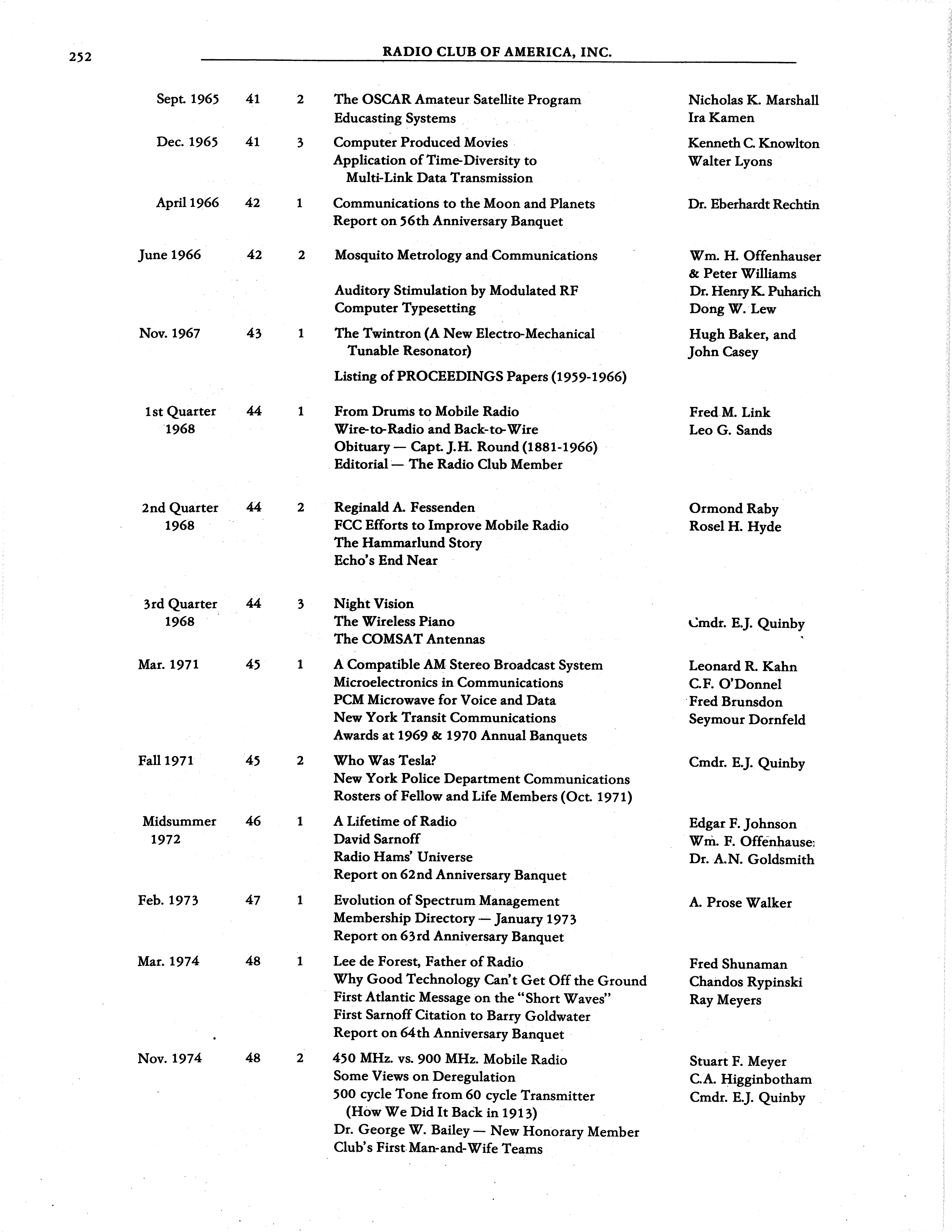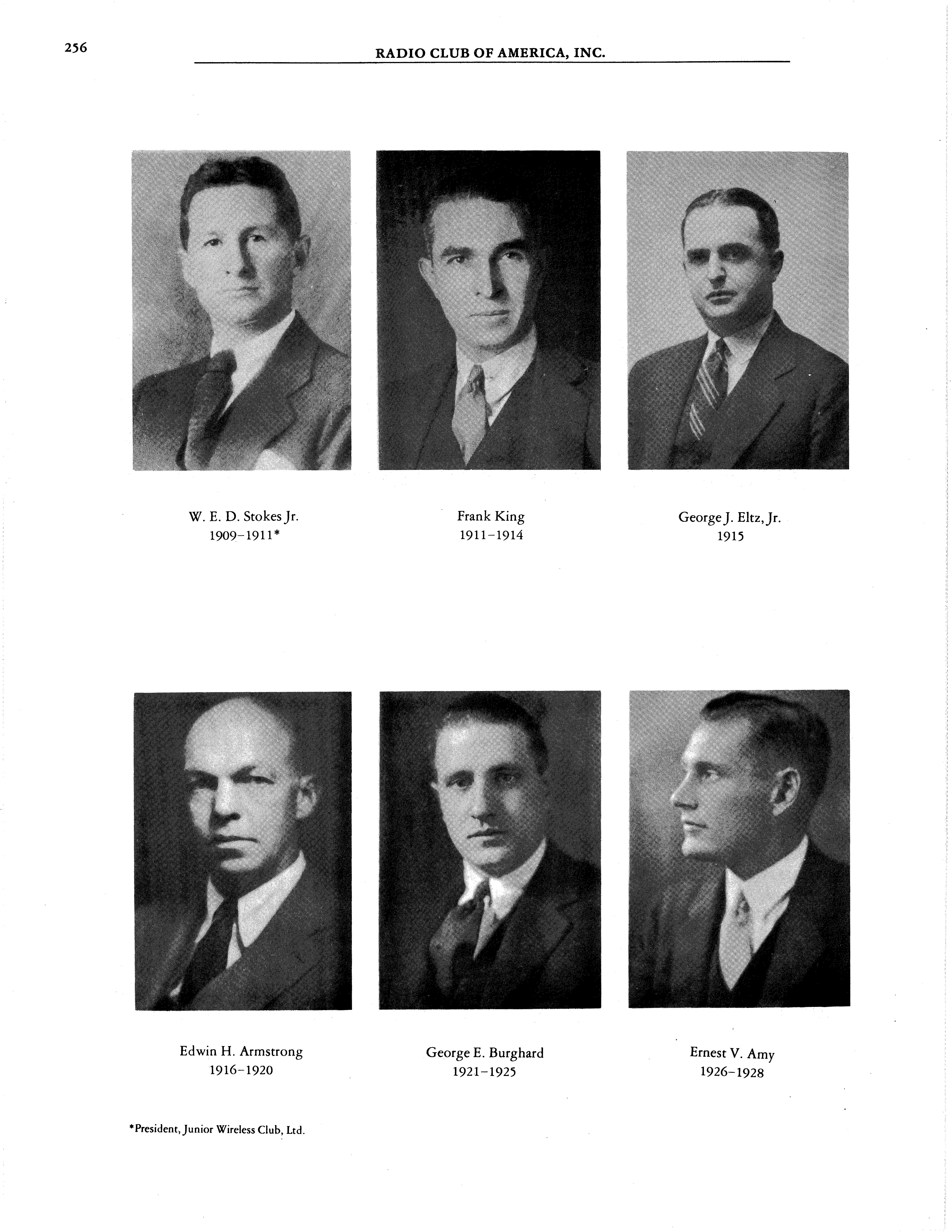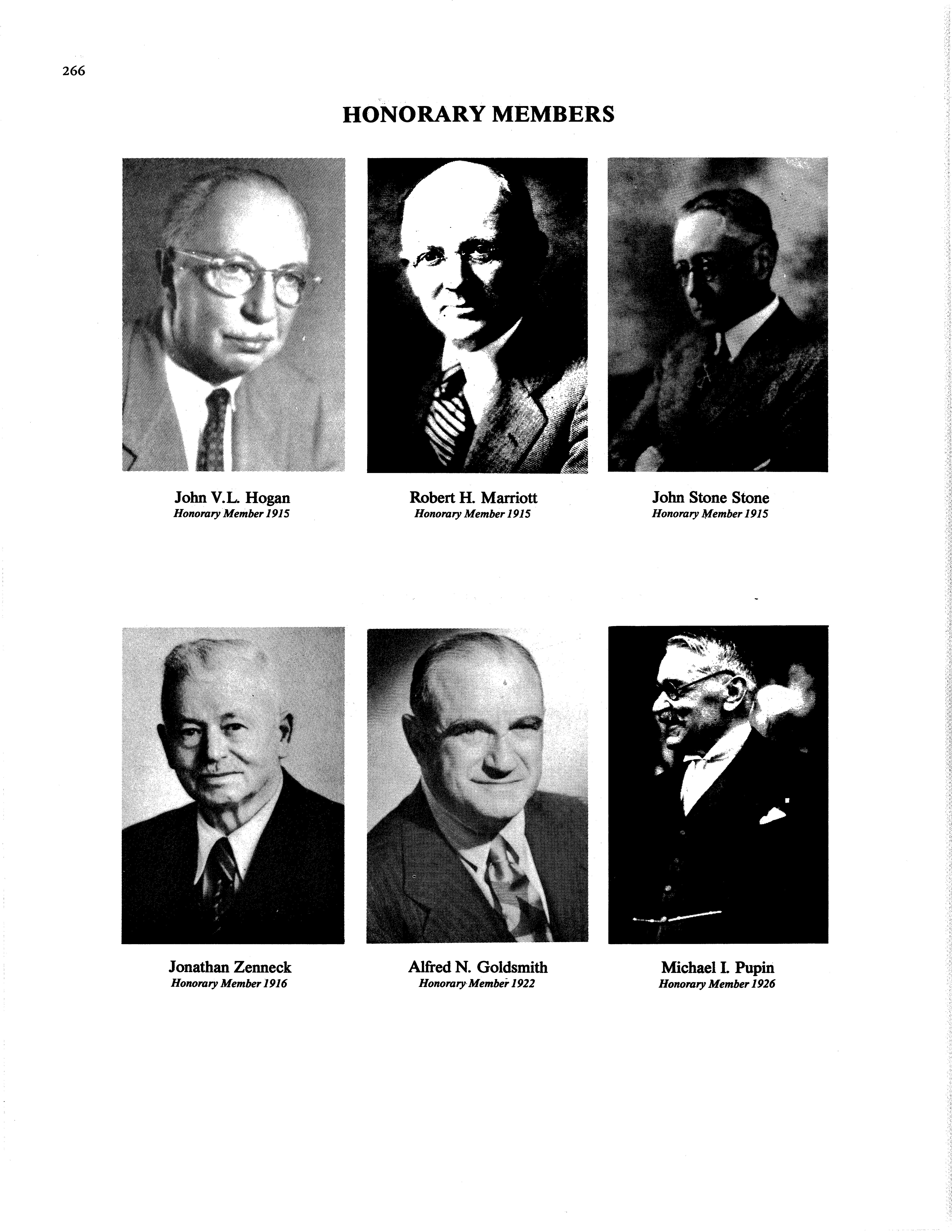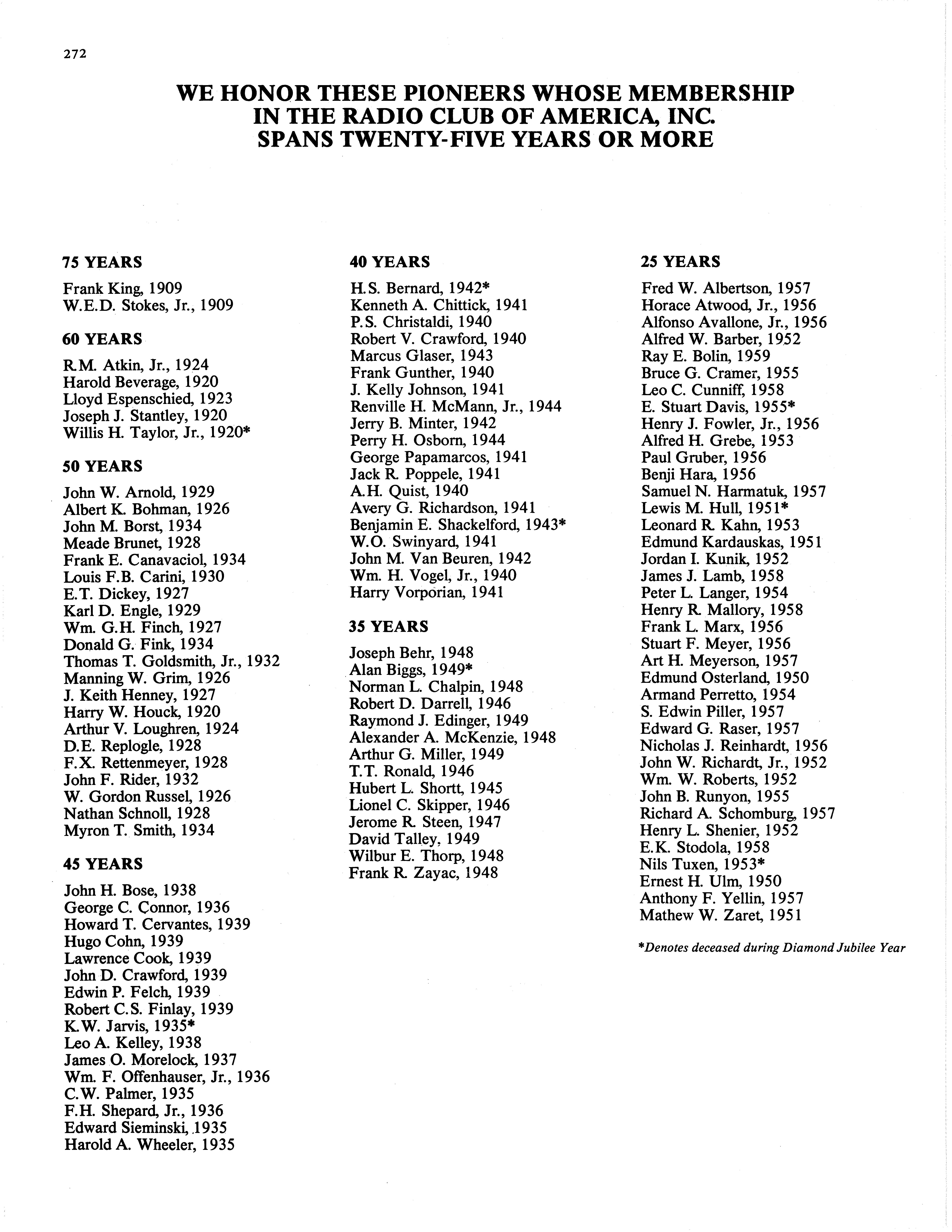





















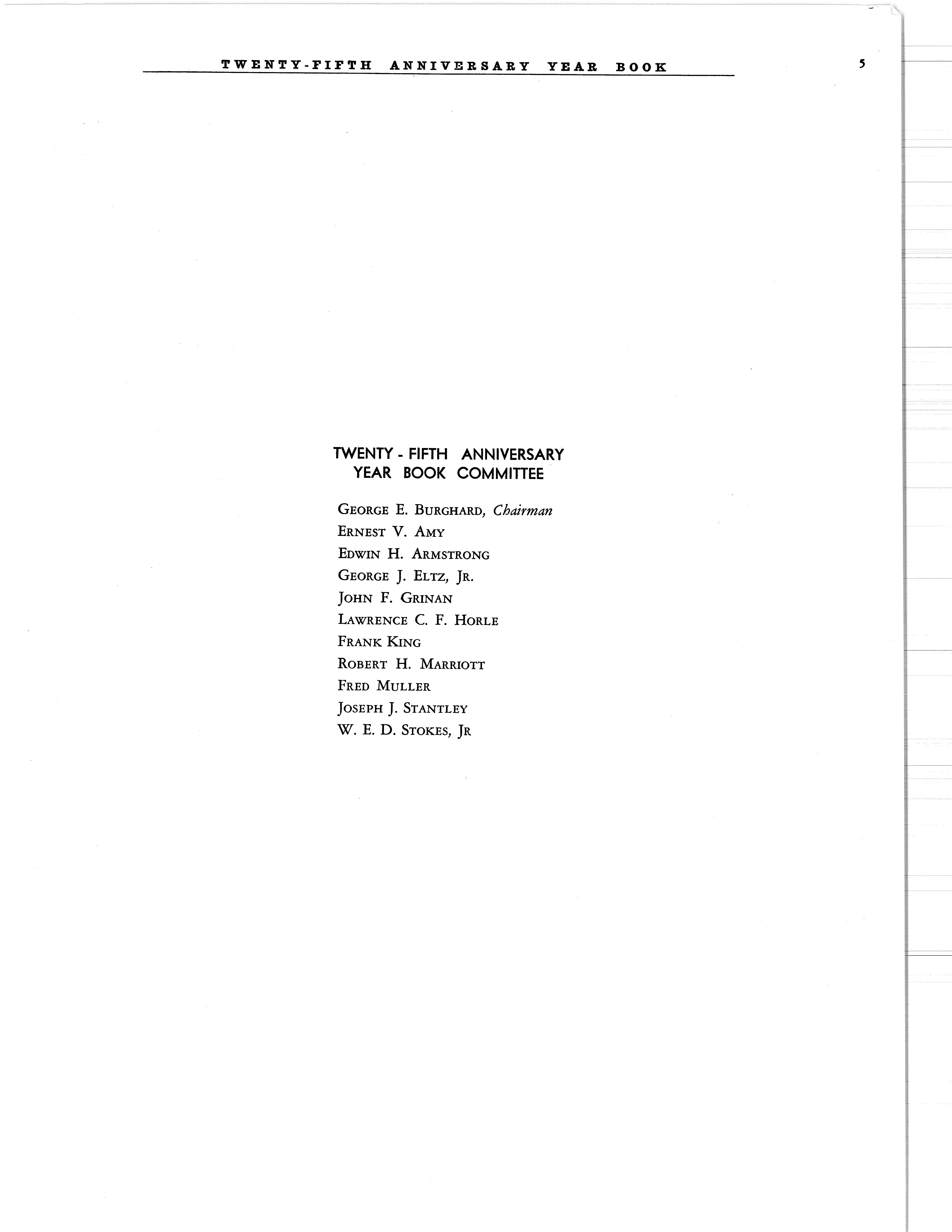





































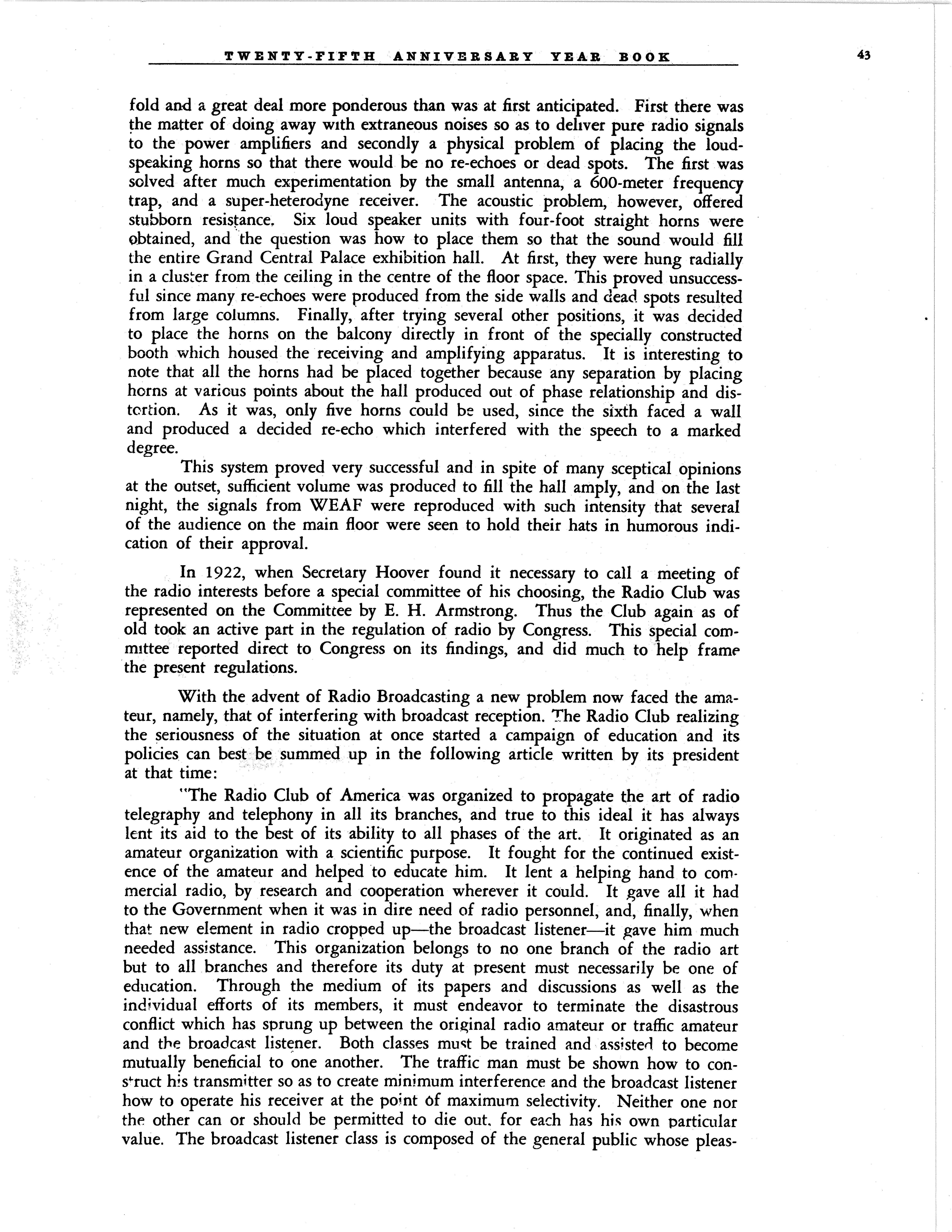





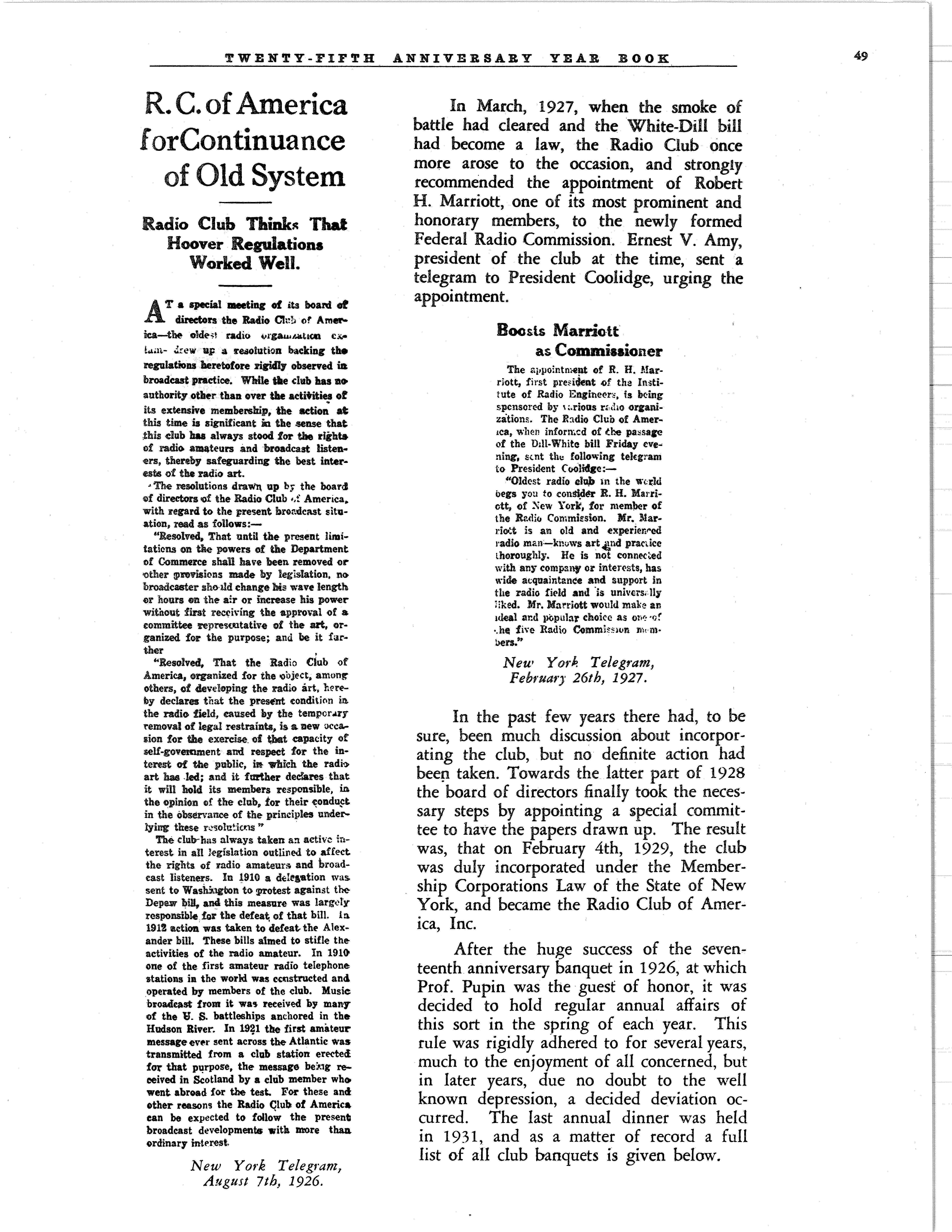





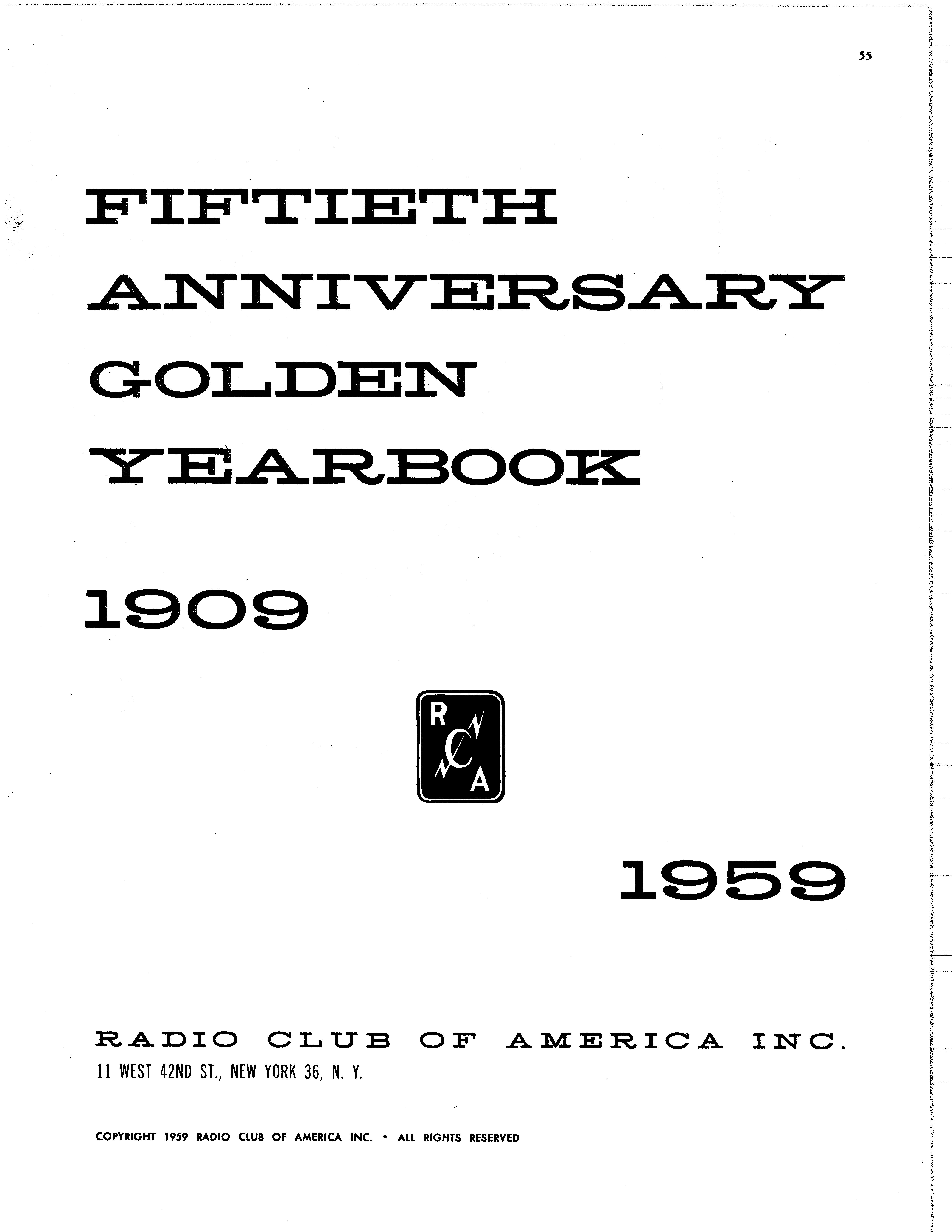





























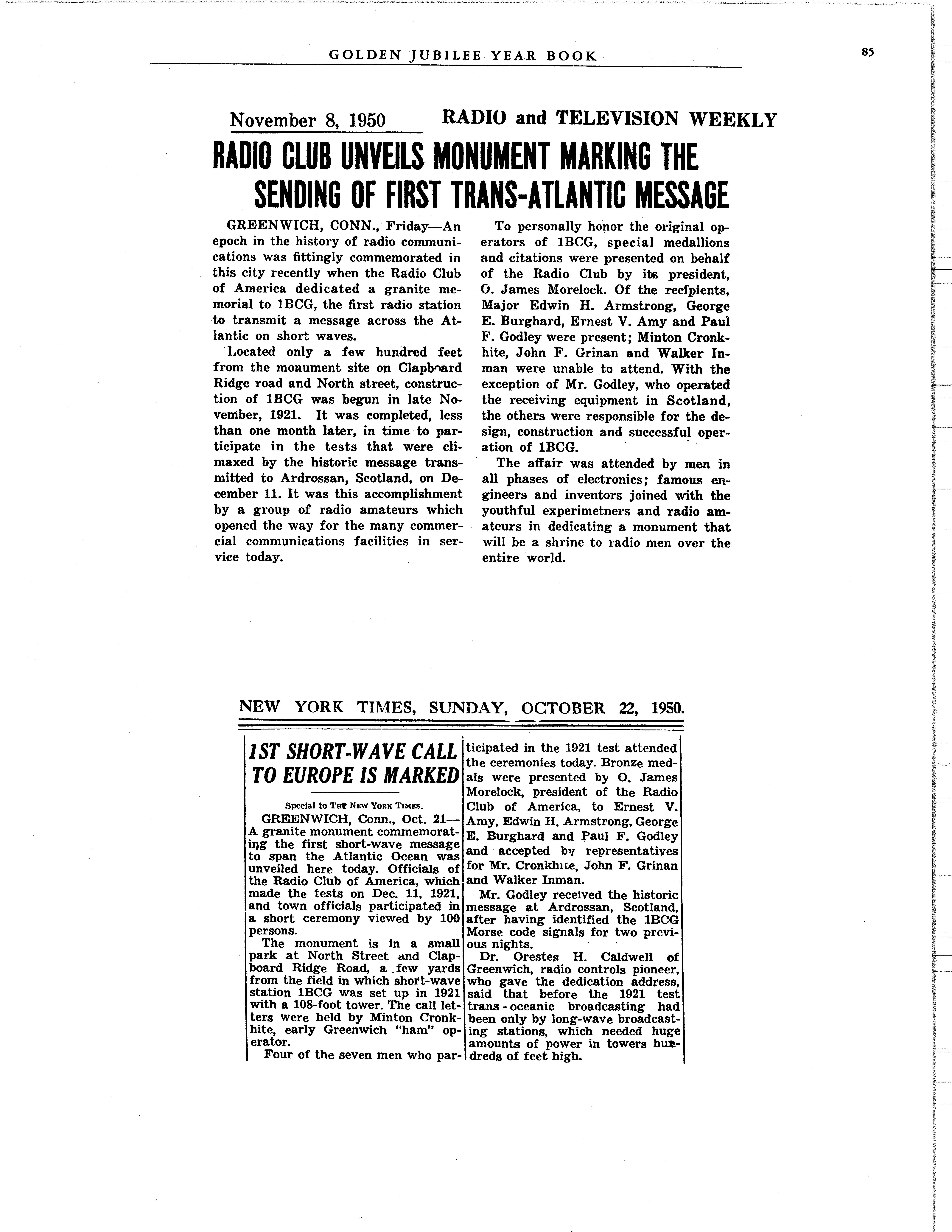








































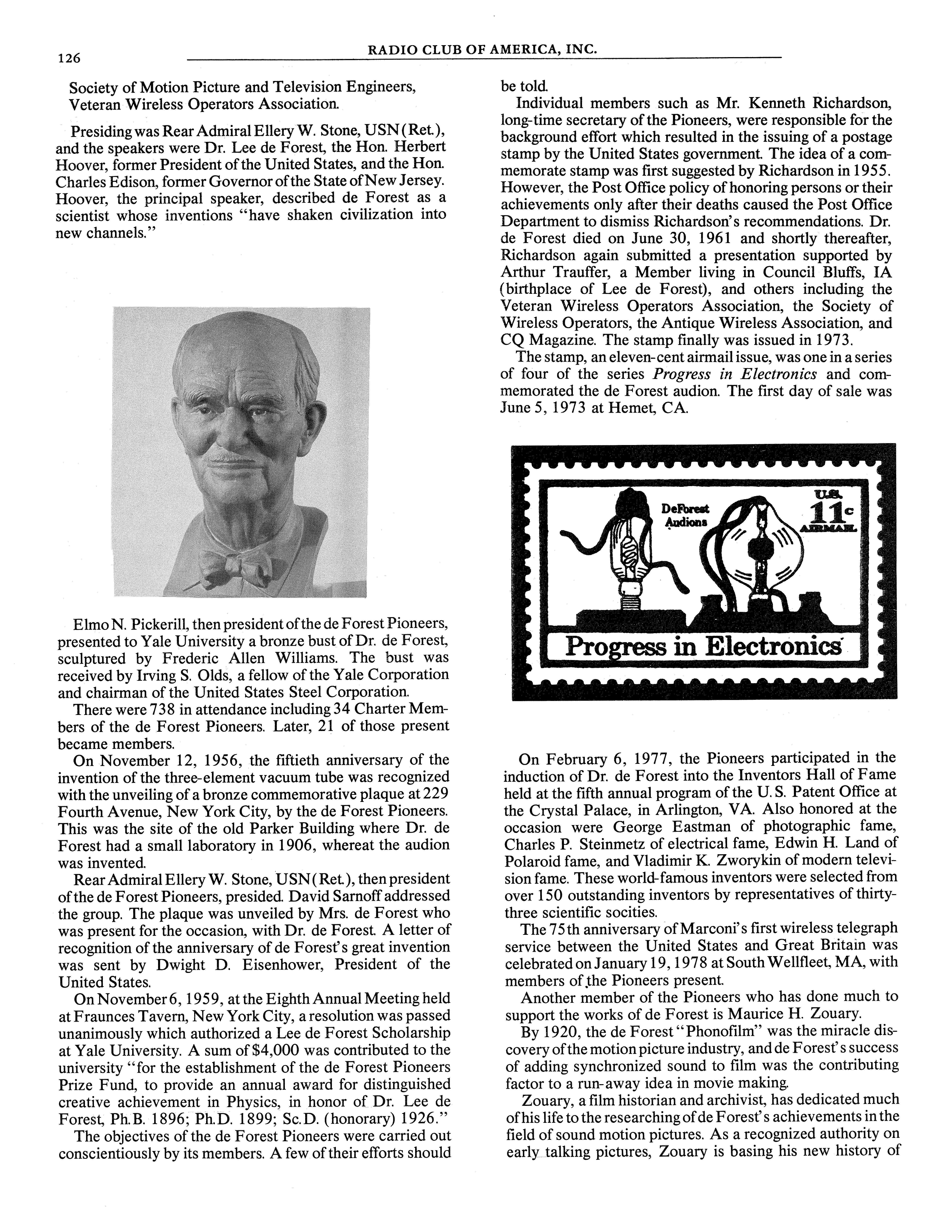










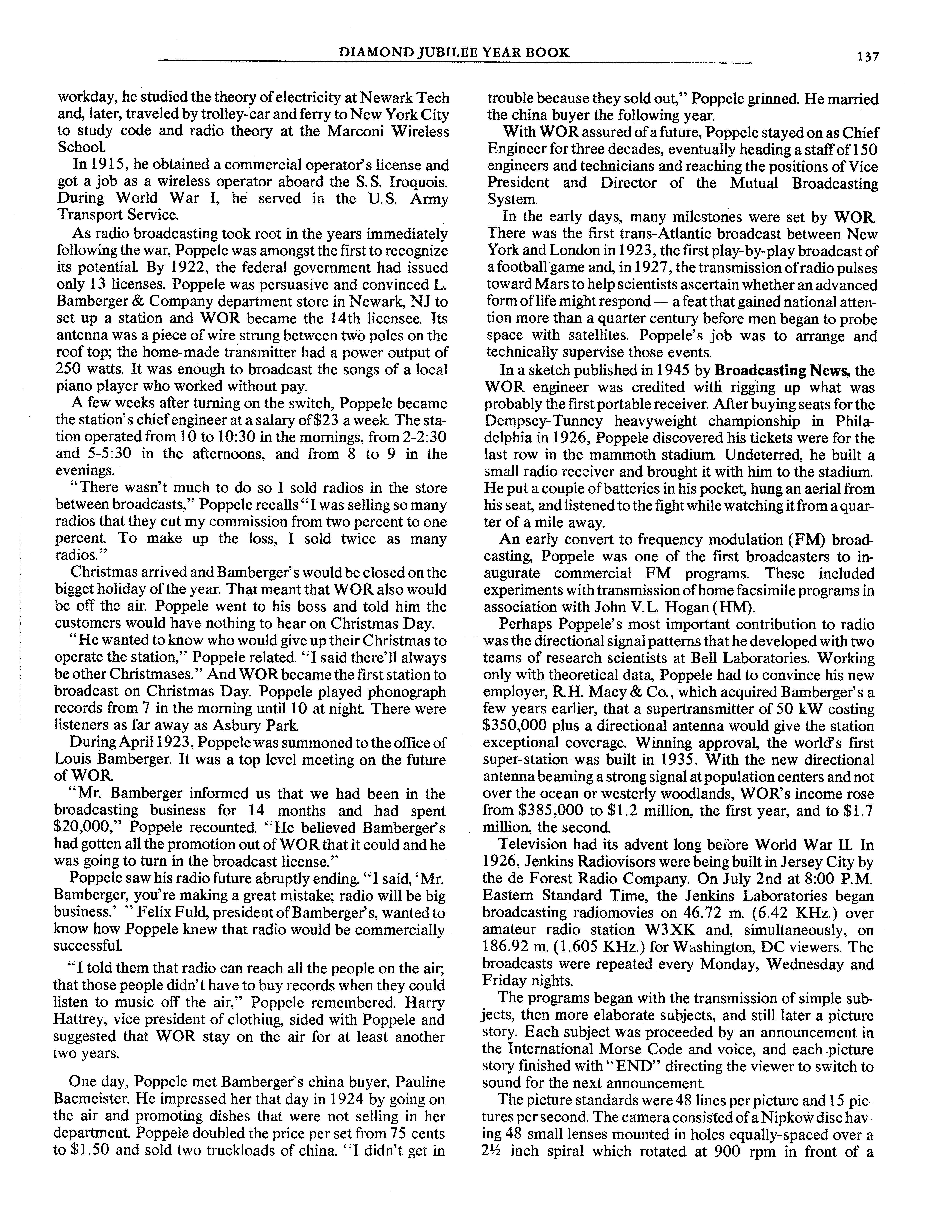













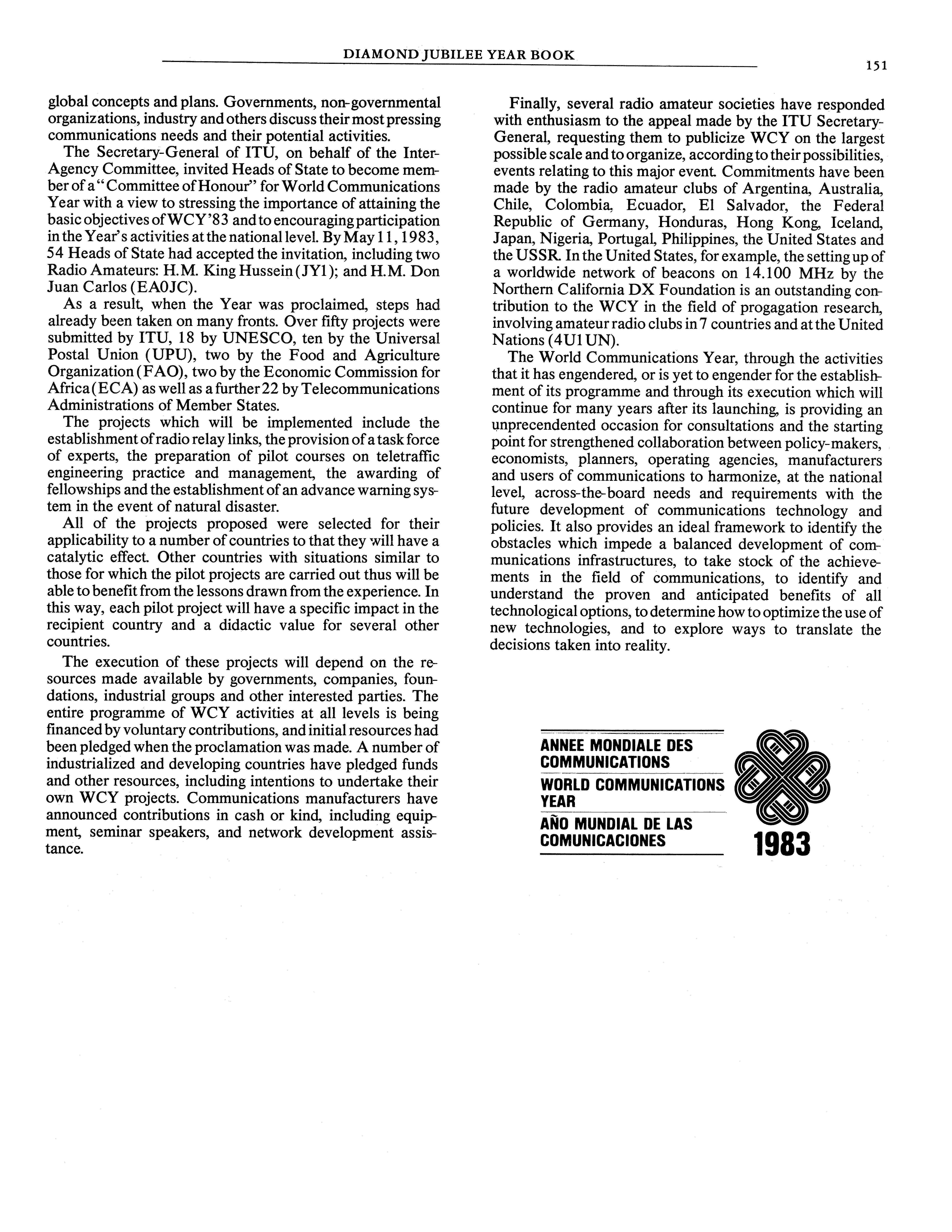









































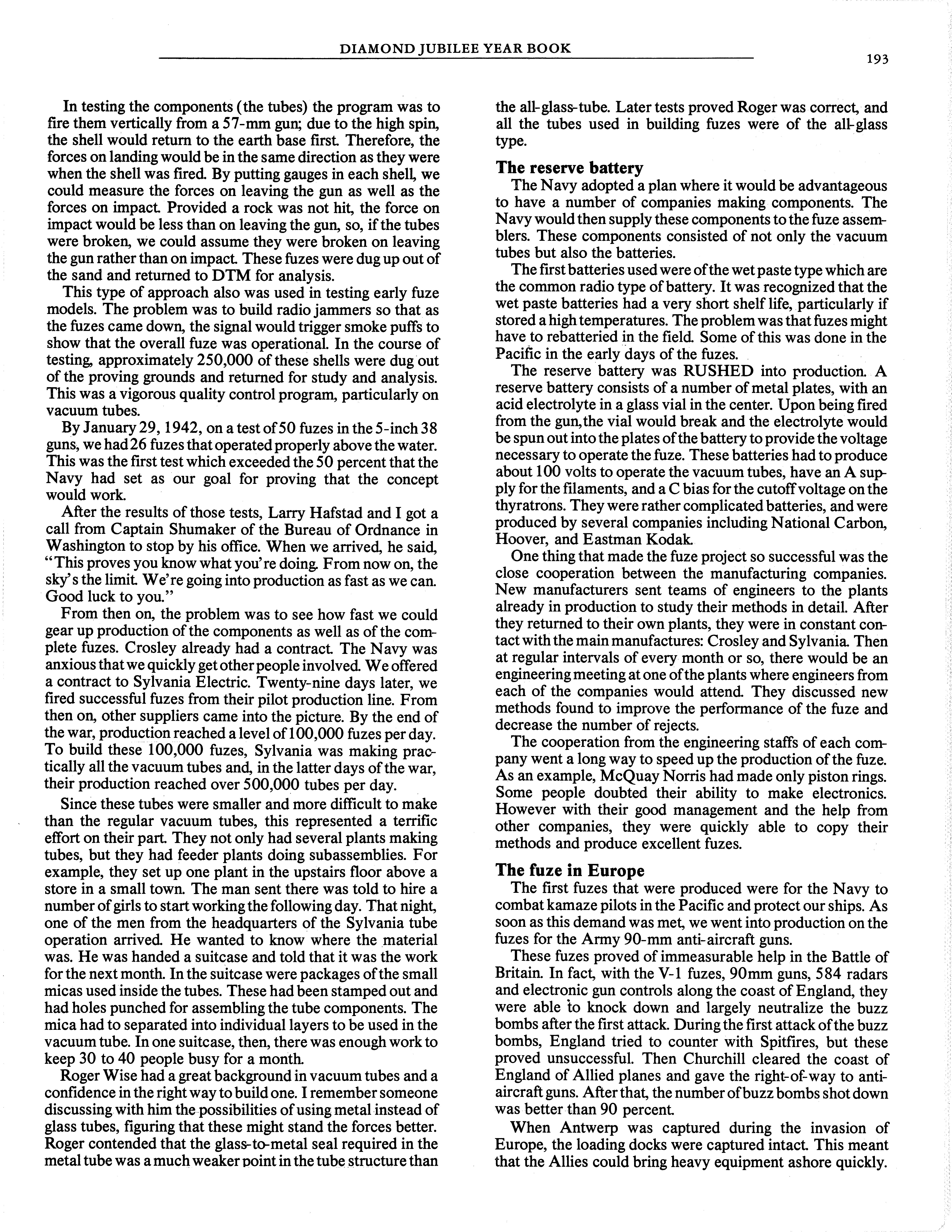
















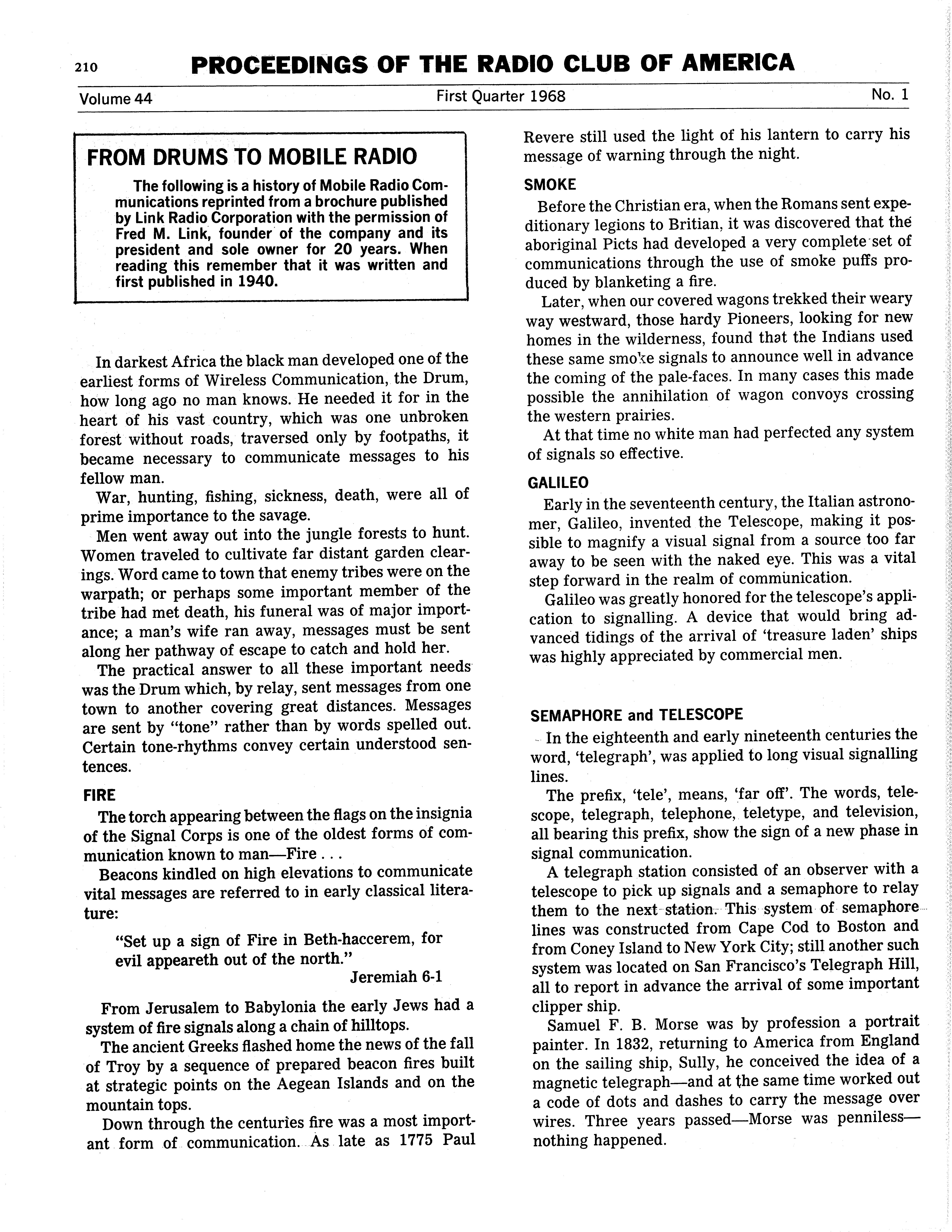




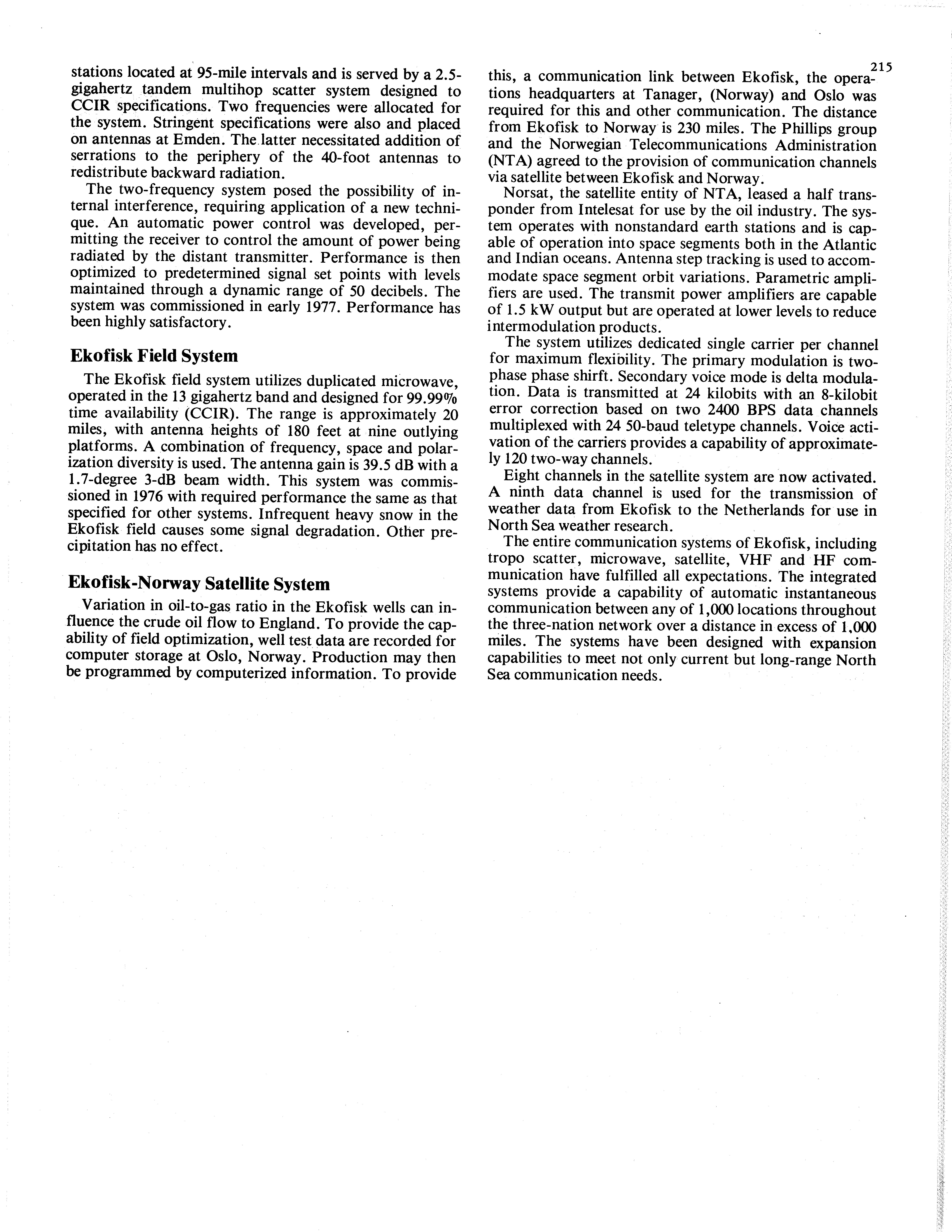








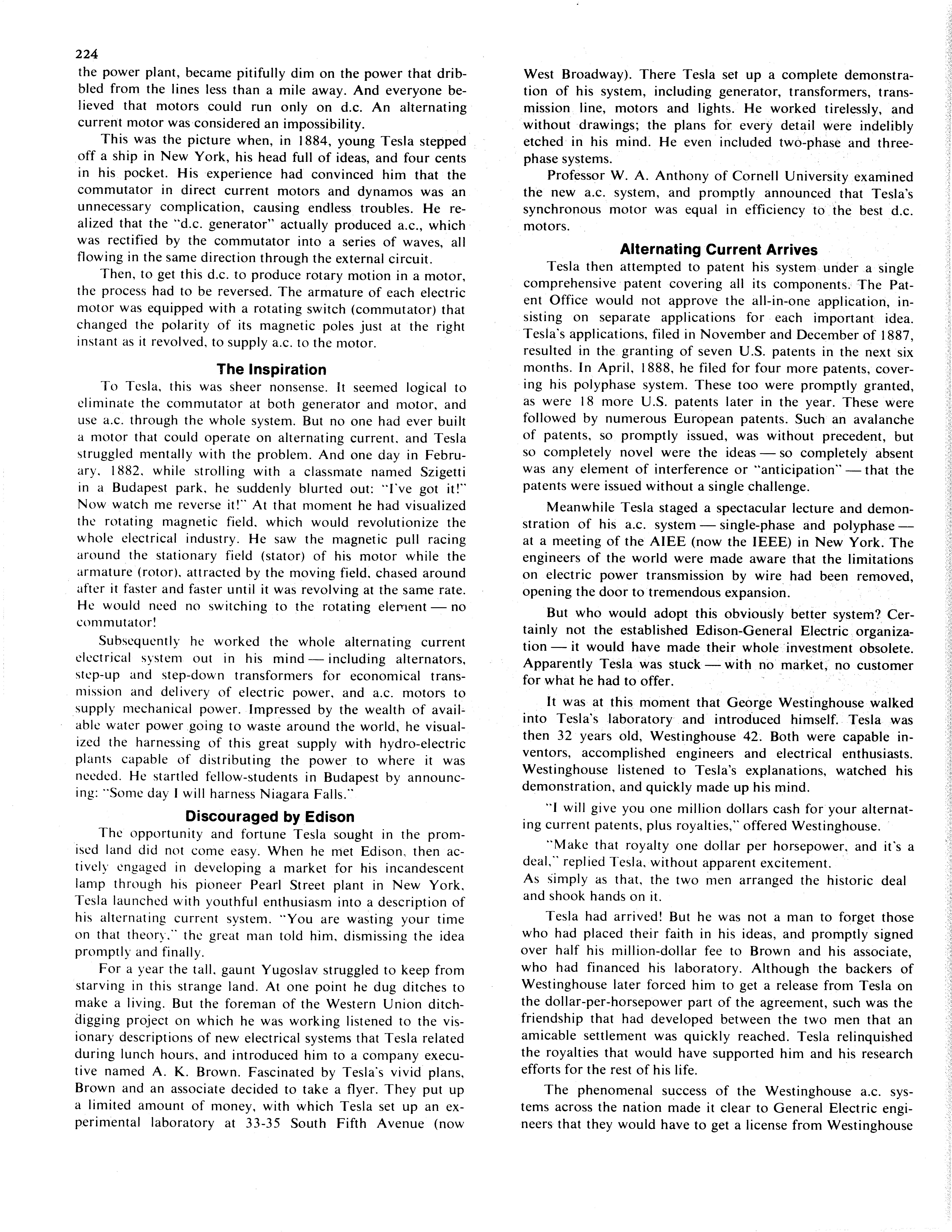




















Date

Title of Paper
May 1917 This represents the period of the World War, and no record Nov. 1919 exists of any papers read before the Club.
Author
Dec. 1919 A New Method of Receiving Weak Signals for Short Waves. Edwin H. Armstrong
Jan. 1920 The Vacuum Tube as a Detector and Amplifier. L. M. Clement
Feb. 1920 Recent Development of Radio Telephones. WalterS. Lemmon
Mar. 1920 Navy Receiving Equipment. L. C. F. Horle
Apr. 1920 Bulb Oscillators for Radio Transmission. Louis A. Hazeltine
May 1920 2ZM's Radiophone and C. W. Transmitter. L. Spangenberg
Sept. 1920 The Bureau of Standards-A.R.R.L. Tests of Short Wave S. Kruse Radio Signal Fading.
Oct. 1920 Determination of Resistance, Inductance and Capacity by the Julius G. Aceves Wheatstone Bridge Method.
Nov. 1920 The Resonant Convertor. WalterS. Lemmon
Dec. 1920 Amateur C. W. Set at 2ZL. ]. 0. Smith
Jan. 1921 Design of Loop Antenna. DavidS. Brown
Feb. 1921 Modulation in Radio Telephony. R. A. Heising
Mar. 1921 Some Operating Notes on the Larger Sizes' of Transmitting William C. White Tubes.
Apr. 1921 Notes on Design of Vacuum Tube Transmitters. A. W. Kishpaugh
May 1921 Commercial Radio Telephony. Francis M. Ryan
Sept. 1921 Description of Radio Station 8XK. Frank Conrad
Oct. 1921 Audio and Radio Frequency Amplification. George]. Eltz,Jr.
Nov. 1921 Methods of Modulation in Radio Telephones. L. C. F. Horle
Dec. 1921 Station 1BCG. George E. Burghard
Jan. 1922 Radio Central. Pierre Boucheron
Feb. 1922 Trans-Atlantic Reception. Paul Godley
Mar. 1922 The S-Tube Rectifier. Howard]. Tyzzer
Apr. 1922 Multi-Stage Amplifiers. M. C. Batsel
June 1922 The Super-Regenerative Circuit. Edwin H. Armstrong
Oct. 1922 The Armstrong Super-Regenerative Circuit: its Operation and George]. Eltz,Jr. Construction.
Dec. 1922 Vacuum Tube S. E. Anderson
Mar. 1923 Tuned Radio Frequency Amplification with Neutralization of Louis A. Hazeltine Capacity Coupling.
Apr. 1923 Eighteen Years of Amateur Radio. George Burghard
May 1923 The Thoriated Tungsten Filament. William C. White
June 1923 How to Build a Super-Heterodyne Receiver. George]. Eltz,Jr.
Sept. 1923 The Fundamentals of Loud Speaker Construction. A. Nyman
Nov. 1923 Why No Receiver Can Eliminate Spark Interference. Louis A. Hazeltine
Jan. 1924 A New Method of Radio Frequency Amplification. C..L. Farrand
Feb. 1924 The Story of the Super-Heterodyne.
Edwin H. Armstrong
Apr. 1924 Solving the Problems of the Neutrodyne. John F. Dreyer, Jr.
Oct. 1924 A Single Control Receiver.
C. L. Farrand
Dec. 1924 An Induction Loud Speaker. Dr. C. W. Hewlett
Feb. 1925 Anti-Radiation Devices.
R. A. Weagant
May 1925 Influence of Wiring in Resonant Circuit Design. Oscar C. Roos
Dec. 1925 Modern Radio Reproduction. Arthur VanDyck
Jan. 1926 Loud Speakers.
C. L. Farrand
Feb. 1926 Electrical Instruments and Their Adaption to Radio. A. F. Corby
Mar. 1926 Tendencies in Modern Radio Receivers. Julius G. Aceves
Apr. 1926 Transformer Coupled Amplifiers for Radio A. W. Saunders
May 1926 Problems of Three Broadcasting Stations. Harry Sadenwater
June 1926 A Short- Wave Superheterodyne Receiver. George]. Eltz,Jr.






